Jules Redefines Her Femininity in Euphoria
“I feel like I’ve framed my entire womanhood around men.”
Intense, captivating visuals are arguably what Euphoria does best. And costume designer Heidi Bivens brings that creative energy to the wardrobe department, where clothing is symbolic of character development. Case in point: Jules Vaughn.
Played by Hunter Schafer, Jules has been a pillar of the show’s impeccable fashion reputation since it premiered in 2019. With an eye for visual art, the character’s outfits embody her natural creativity.
As the series progresses, Jules continues to examine the ways in which her self-expression connects with her transness, womanhood and her own body. And in season two, her changing style tells a story.
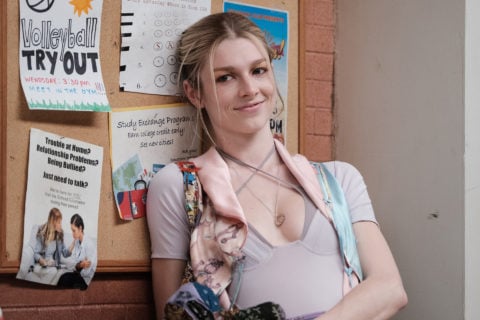
The latest Euphoria episode opened with an artistic ode to fan-favourite on-screen couple, Jules and Rue (Zendaya). In what is perhaps the most beautiful scene of the entire series, we see a creative montage of the couple recreating influential pop-culture references, starting with Jules as Venus in “The Birth of Venus.”
The famed painting, made by Botticelli in the late 15th century, shows the goddess of love and beauty looking ethereal and luminous as she stands on a giant scallop shell, like a pearl. The recreation depicts Jules as the embodiment of divine femininity, a theme that is deeply tied to the character’s arc.
When we first met Jules in season one, she channels Sailor Moon, sporting florals and pastels, Y2K-inspired pleated skirts and cropped baby tees with bright, colourful makeup. Her long, platinum blond tresses are accentuated with baby pink hair dye.
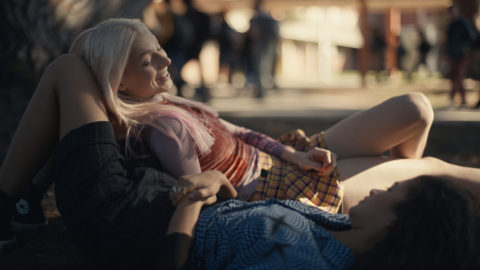
Despite her whimsical appearance, she struggles with her identity, feeling pressure to perform hyper-femininity in order to feel validated by men. We see her style change as she begins to feel a sense of liberation thanks, in part, to her relationship with Rue.
By the end of season one, she wears darker streaks in her hair, punk-inspired makeup and baggier, more androgynous silhouettes.
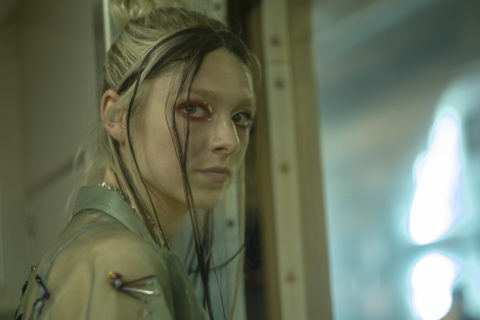
In season two, Jules feels more in tune with herself, and her fashion is decidedly edgier. This can be traced back to the character’s spotlight episode, which aired between season one and season two. Named “F*** Anyone Who’s Not A Sea Blob,” the episode was co-written by Schafer and Euphoria creator Sam Levinson.
In a conversation between Jules and her therapist, she comes to a ground-breaking revelation: “I feel like I’ve framed my entire womanhood around men.” She realizes the image of herself she presents to the world has for so long been crafted by what she thought men desired. “I’ve been trying to conquer femininity, and somewhere along the way, I feel like femininity conquered me,” she says.
She also describes her complicated relationship to puberty, and how she worried it would distance her from femininity. But then, she compares womanhood to the ocean, something which is broad, deep and strong, yet still feminine and beautiful. “I want to be as beautiful as the ocean,” she says.
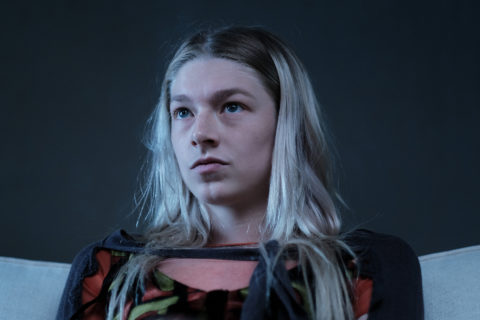
In the therapy episode, we see a makeup-less Jules in muted tones. In contrast to her bright, almost distracting style at the start of the series, the natural look represents her newfound vulnerability.
This season, we can see the effects of the therapy session. Jules’s style transformation is perhaps most evident in her blunt bob hair cut. For centuries, long hair has been tied to femininity, so this decision illustrates her breaking free from societal markers of conventional womanhood and embarking on a new journey.
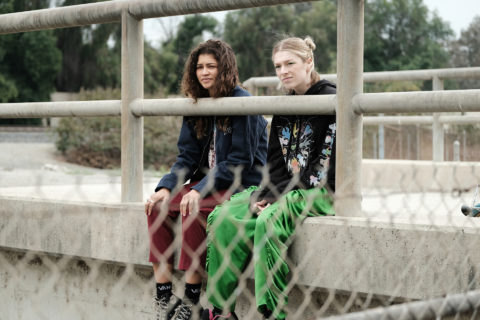
Jules is experimenting with fashion in the second season of Euphoria. She wears a binder and her outfits often comprise chokers, baggy pants and an overall dimmer colour palette. In her makeup, she experiments with darker colours and sharp eyeliner designs. Through this style evolution, she frees herself from the male gaze and reclaims a sense of femininity and creative expression.
In Euphoria, Jules uses fashion as a tool for discovery and self-acceptance. As her style evolves, she continues to grow into her truest form. We’ll be watching closely






